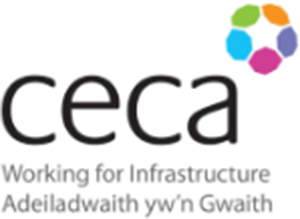The Senedd elections took place in May 2021 and we saw Welsh Labour gain half the seats in the Senedd which is a remarkable achievement given that the proportional representation system is designed to prevent over-domination by one party and more fairly represent the views of the whole electorate. Since the elections Ministerial positions and portfolios have been allocated, a new Programme for Government for the next 5 years has been announced and a Climate Change Ministry has been created.
Does this matter for civil engineering businesses? Well, yes it does. And not just what’s happening at the Senedd but also at Westminster. So, if you’re not convinced of the connection between politics and infrastructure then you clearly haven’t been paying attention to what’s been going on around the world! And if you’re not aware of the need for civil engineers to be “politically-savvy” then, I suspect, you’ll find it very difficult to promote your projects as, whether we like it or not, these projects all need political will and “buy in” to progress.
The creation of the “Ministry for Climate Change”, at the Senedd, within which sits many elements of infrastructure, sends a very clear message to our industry of the future direction. That’s why all of us involved in the planning and delivery of infrastructure programmes need to be conscious, aware and “in tune” with the prevailing political environment – locally, across Wales, the UK and beyond.
In partnership with Positif Politics, CECA Wales came together with our partners in the Welsh Infrastructure Alliance (WIA) on 14th June to provide an overview of the current political environment and its potential impact on infrastructure development in Wales. Positif are one of Wales’ most authoritative public affairs consultancies in Wales with considerable experience of the political scene across Wales and the UK and one of their directors, Naomi Williams, provided an expert insight into the current political “mood”.
And here’s some of the key messages from the session :
New faces and old faces
There are 19 new faces – that’s a lot out of a Senedd of 60, almost a third.
There are still some old faces as well though!
New faces can mean new ideas and it’s important that we understand what those new ideas are.
But it’s also important that we continue to work with the “old faces” and build upon those relationships.
The Committees
We love a good committee in Wales but to be fair a lot of work gets done at these committees. The challenge for us is to make sure that infrastructure and civil engineering businesses get a good hearing at these committees and are not drowned out by the noise of others.
Climate Change, Environment and Infrastructure : Chaired by Llyr Gruffudd of Plaid Cymru, this is an important committee for our sector but, arguably, the biggest challenge will be ensuring that the “infrastructure” bit of the title gets as much attention as the other two bits!
Economy, Trade and Rural Affairs : We know the many challenges that face our sector business-wise such as lack of “pipeline” visibility, poor payment practices and difficult procurement processes still need to be tackled. We need to keep these on the agenda of this committee and ensure that the Welsh Construction Forum delivers for the sector.
Local Government and Housing : Much of Wales’ infrastructure work is delivered via local government and our sector depends on this working well. It’s fair to say that there’s much room for improvement across local government, social housing associations and the private sector so this will also be an important committee.
The infrastructure players
There’s no doubt that the Minister for Climate Change, Julie James, and her deputy, Lee Waters, will have a significant impact on the infrastructure sector given that the portfolio is huge and incorporates many elements of our sector including transportation.
However, the Minister for Economy, Vaughan Gething, and the Minister for Local Government and Finance, Rebecca Evans, will also play an important part when it comes to improving the business environment for civil engineering companies and the procurement scene which needs a lot of improving and will be subject to legislation, very soon, in both Wales and Westminster.
And whilst the Secretary of State for Wales, Simon Hart, sits in Westminster rather than Wales, the influence of Westminster on what we build in Wales will be huge particularly following Brexit. If they are serious about “levelling up” and ensuring Wales gets “not a penny less” than what it got in EU funding then we will watch what Simon Hart gets up to very closely. And given that many elements of infrastructure are not devolved eg rail (apart from the Core Valley Lines) we need to see fair funding from the UK Government.
The big political/infrastructure challenges
- Wales and Westminster relations – these need to improve drastically otherwise we’ll see many infrastructure decisions stalling;
- Fair funding and “leveling up” – the UK Government needs to deliver on its promises;
- The Roads Review – whilst this 12 month review continues we need to see investment by the Welsh Government in the maintenance and adaptation of roads as a matter of urgency;
- Politicians need to show strong leadership in driving forward with plans to decarbonise our infrastructure. The industry can meet this challenge but investment will be needed;
- Wales needs a fair funding settlement on rail projects to reflect a potential Barnett consequential from HS2 of £5bn over 10 years.
- Obstructions in the partly devolved energy sector need to be removed to increase investment in community owned projects.
The session was well received and we’ll run more over the next few years. But what is clear is that as civil engineers we need to stay close to the political world if we are to ensure that Wales gets the 21st Century infrastructure that it needs and deserves.
Ed Evans
Director CECA Wales

